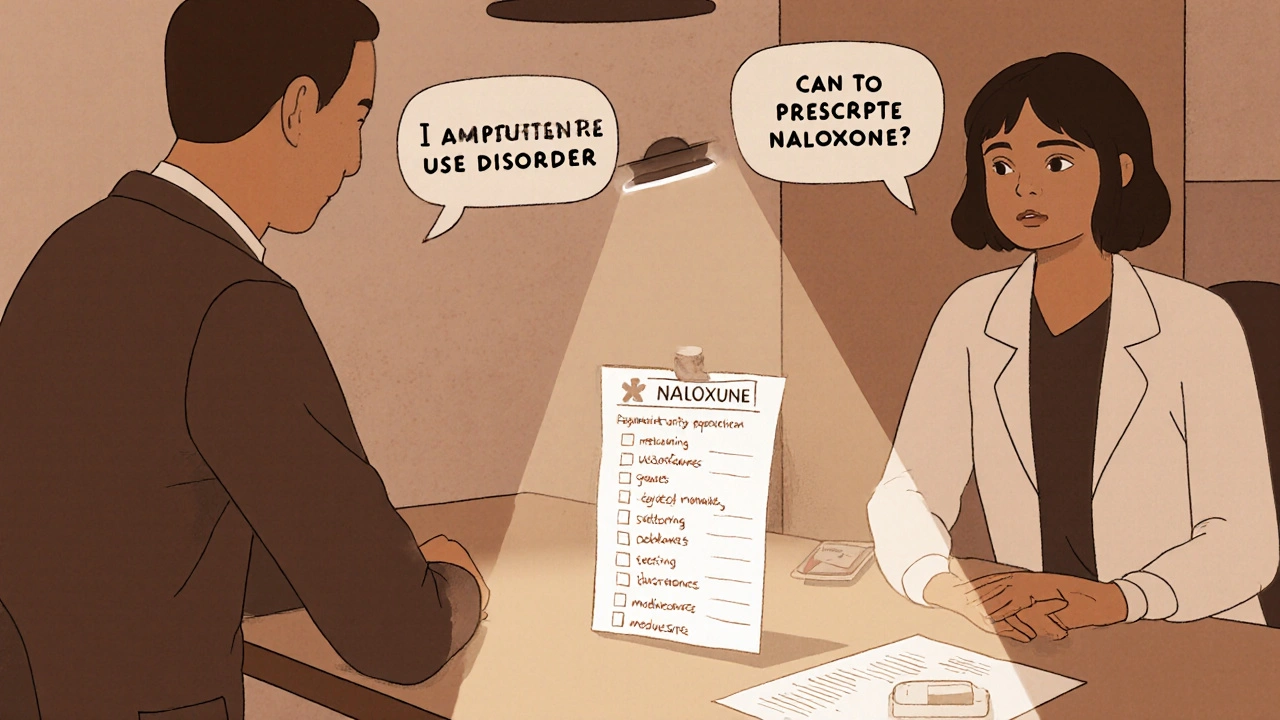
It’s hard to bring up overdose risk with your doctor-even if you’re taking prescribed pain medication, have a history of substance use, or just want to be safe. You might worry they’ll judge you, assume you’re using drugs illegally, or think you’re exaggerating. But here’s the truth: overdose risk isn’t about being weak or irresponsible. It’s a medical reality for millions, and your doctor is supposed to help you manage it-not shame you.
Why This Conversation Matters More Than You Think
Every day in the U.S., 78 people die from opioid overdoses. That’s not just a statistic-it’s someone’s parent, sibling, friend, or neighbor. And many of those deaths could be prevented if people had access to naloxone and felt safe talking about their risks. Yet, a 2022 survey found that 68% of people with substance use disorder have been met with stigmatizing language from healthcare providers. Phrases like “You’re just looking for drugs” or “Why would you need that?” shut down conversations before they even start. The good news? You don’t have to wait for your doctor to bring it up. You can lead the conversation-and there’s a proven way to do it that works.Use Person-First Language
Words matter. Calling someone an “addict” or “junkie” is not just hurtful-it’s medically outdated. Research from Johns Hopkins shows that using person-first language like “person with a substance use disorder” increases the chance of getting compassionate care by 37%. Your doctor may not say it out loud, but they’re more likely to listen if you frame your experience as a health condition, not a moral failure. Instead of saying:- “I’m addicted to painkillers.”
- “I have a substance use disorder, and I’m managing it with my prescribed medication.”
Prepare Specific Facts Before Your Appointment
Doctors respond to data, not emotions. If you walk in saying, “I’m scared I might overdose,” they might not know how to respond. But if you say, “I’ve been taking 40 mg of oxycodone daily for six months, and I’ve started using alcohol on weekends to help me sleep,” that’s actionable information. Take 15-20 minutes before your appointment to write down:- All medications you take (including dosages and how often)
- Any alcohol, marijuana, benzodiazepines, or other substances you use
- Any times you’ve felt dizzy, passed out, or had trouble breathing after taking meds
- Any recent changes in your routine, stress levels, or sleep
Ask for Naloxone Like You’d Ask for an EpiPen
Naloxone is a life-saving medication that reverses opioid overdoses. It’s safe, easy to use, and doesn’t cause euphoria. Yet, only 1 in 4 people at risk for overdose ever get it prescribed. Here’s the script that works:“I’d like to discuss overdose prevention strategies as part of my safety plan. Can you prescribe me naloxone? I want to have it on hand, just like I would for an EpiPen if I had severe allergies.”
This framing-comparing it to a common, non-stigmatized safety tool-is backed by a 2021 JAMA Internal Medicine study. Patients who used this exact phrase were 62% more likely to receive naloxone than those who said, “I’m worried I might overdose.” And now, thanks to FDA approval of a generic nasal naloxone in July 2023, the cost has dropped from $130 to $25 per kit. It’s affordable. It’s accessible. And it’s not a sign of failure-it’s a sign of responsibility.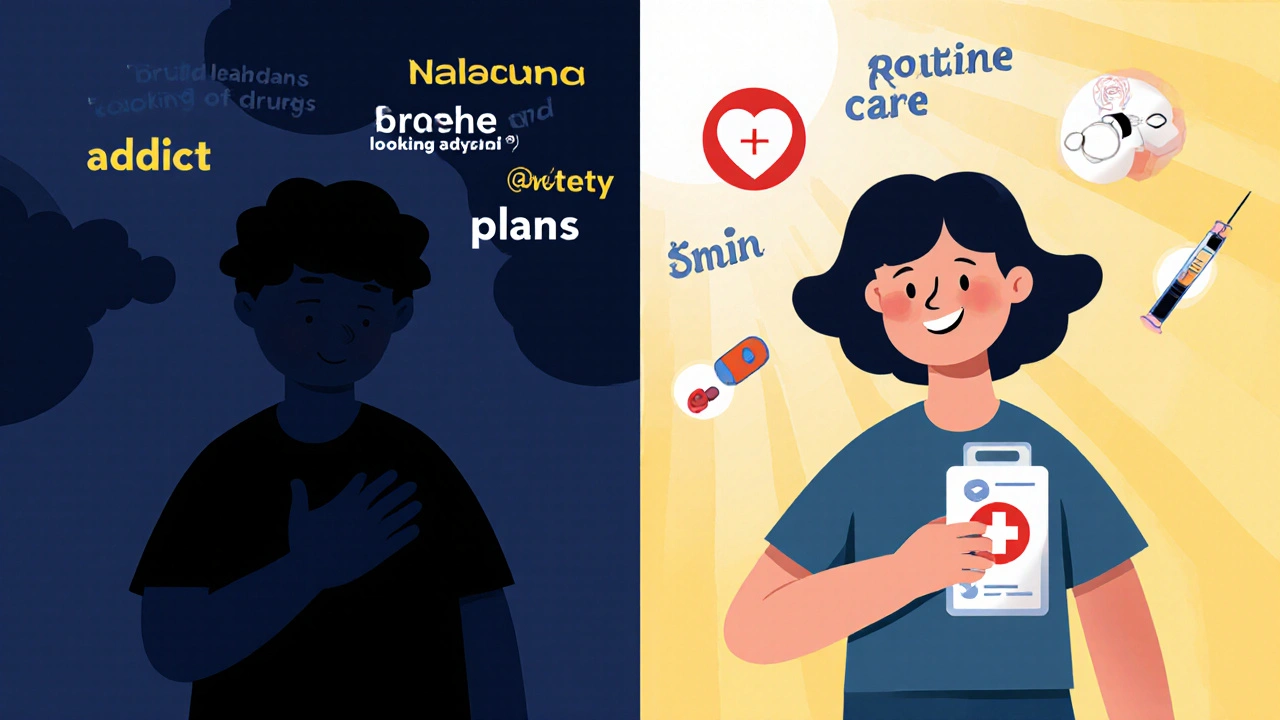
Anticipate Stigma-And Name It
Not every doctor will respond well. Some still hold outdated beliefs. A 2019 study found that 43% of healthcare providers have negative attitudes toward patients with opioid use disorder. That’s not your fault. But you can prepare for it. If your doctor says something like, “Why would you need that?” or “Are you using heroin?”, don’t shut down. Try this:“I’m concerned that stigma might be getting in the way of us having a real conversation. I’m not asking for this because I’m using illegally-I’m asking because I want to stay safe, and I’ve read that this is standard care for people on long-term opioids.”
Dr. Nora Volkow, Director of the National Institute on Drug Abuse, says: “Stigma is the single greatest barrier to people seeking treatment.” Naming it out loud takes power away from it.Frame It as Routine Care
The CDC updated its guidelines in August 2023 to say this: “Assessment of overdose risk should be routine for all patients prescribed opioids, regardless of perceived risk.” That means your doctor is supposed to ask this question-not you. So you can say:“As part of my comprehensive health plan, I’d like to discuss overdose prevention strategies, including naloxone, just as we discuss blood pressure checks or flu shots for other chronic conditions.”
This shifts the conversation from “Are you at risk?” to “How do we keep you safe?” It’s the same way you’d talk about diabetes, heart disease, or asthma. Substance use disorder belongs in that same category.What If Your Doctor Refuses?
You’re not powerless. If your doctor says no to naloxone or shuts down the conversation:- Ask for a referral to a provider who specializes in addiction medicine.
- Visit a pharmacy-they can dispense naloxone without a prescription in 47 states.
- Call SAMHSA’s National Helpline at 1-800-662-4357. They’ll help you find resources and even practice what to say before your next appointment.
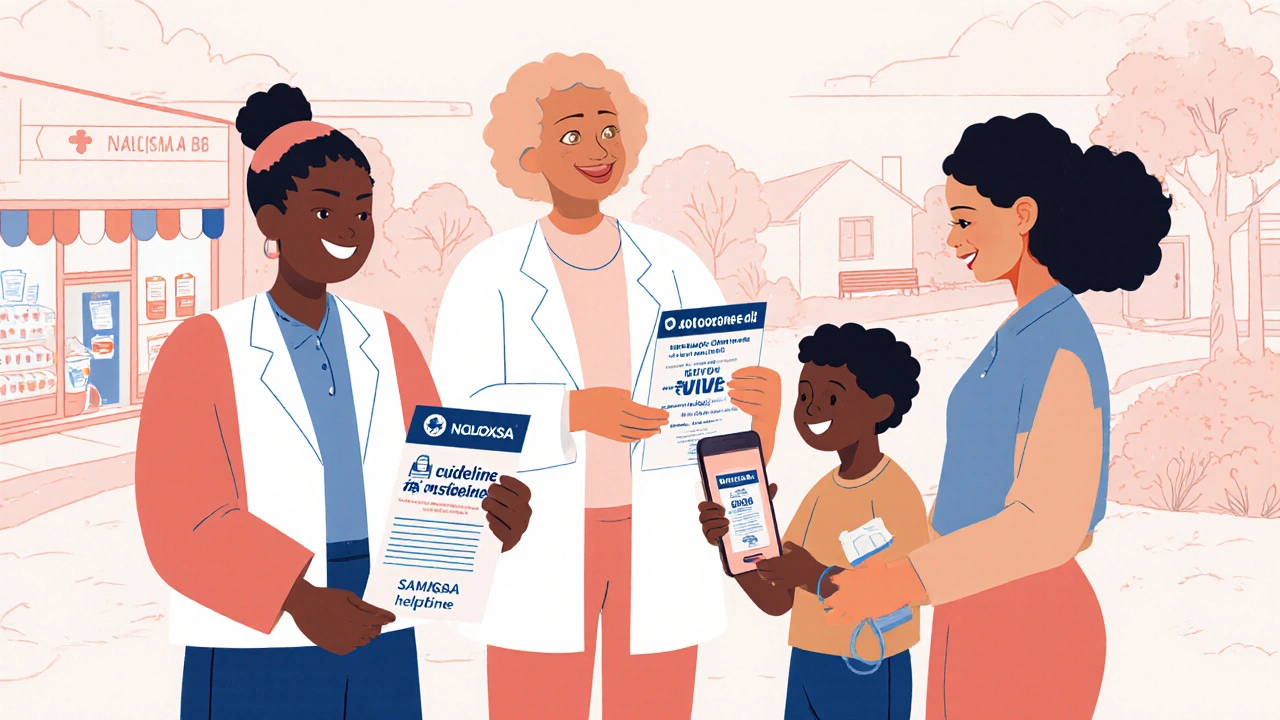
Real Stories, Real Results
One Reddit user, u/PainManagementJourney, shared: “I brought the CDC’s patient talking points to my appointment and said, ‘I want to discuss overdose prevention strategies as part of my comprehensive care plan.’ My doctor immediately prescribed naloxone without judgment.” Another, u/OpioidPatient, said: “When I mentioned I’d researched naloxone, my doctor asked, ‘Are you using heroin?’ I felt shamed and didn’t return for eight months.” The difference? One person used clear, factual, non-shaming language. The other didn’t.Where to Get Help
You don’t have to do this alone:- SAMHSA National Helpline: 1-800-662-4357 (free, confidential, 24/7)
- Reverse Overdose Oregon: Free, tested patient talking points in multiple languages
- SMART Recovery: Weekly online meetings to practice medical conversations
- Pharmacies: Naloxone is available over the counter in most states
It’s Not About Blame-It’s About Survival
Overdose isn’t a failure. It’s a medical emergency. And just like you wouldn’t feel guilty for carrying an inhaler if you had asthma, you shouldn’t feel guilty for carrying naloxone if you’re on opioids or using substances. The system isn’t perfect. Some doctors still don’t get it. Insurance still blocks care. Rural areas still lack providers. But you have more power than you think. You can use the right words. You can bring the facts. You can ask for help without apology. Your life matters. Your safety matters. And you deserve care without shame.What if my doctor says I don’t need naloxone because I’m not an addict?
You don’t have to be labeled an addict to be at risk. Anyone taking opioids long-term-even as prescribed-is at risk, especially if they use alcohol, benzodiazepines, or have sleep apnea. Naloxone isn’t for “addicts”-it’s for anyone who takes pain medication. You can say, “The CDC says everyone on opioids should have access to naloxone. I’m asking for it because I want to be safe, not because I’m using illegally.”
Can I get naloxone without a prescription?
Yes. In 47 states, pharmacies can dispense naloxone without a prescription. You can walk in and ask for it by name. Many pharmacies offer it for free or at low cost through public health programs. Check your local pharmacy’s website or call ahead to confirm availability.
Is it safe to use naloxone if I’m not sure someone is overdosing?
Yes. Naloxone only works if opioids are in the system. If someone isn’t overdosing on opioids, naloxone has no effect. It’s safe to use even if you’re unsure. If someone is unresponsive, not breathing, or has blue lips, give naloxone immediately and call 999. It won’t hurt them-it could save their life.
Will my doctor report me if I admit to using illegal drugs?
No. In the U.S., healthcare providers are legally required to keep your medical information private under HIPAA. They cannot report you to law enforcement for substance use unless you’re a danger to yourself or others, or if a child is involved. Most doctors want to help, not punish. Being honest gives them the information they need to keep you safe.
How do I know if I’m at risk for overdose?
You’re at higher risk if you: take opioids daily, use alcohol or benzodiazepines with your meds, have a history of overdose, have chronic lung disease, use higher doses than prescribed, or have recently stopped using and then restarted. The CDC recommends all patients on opioids discuss overdose risk with their provider-even if they think they’re “fine.”
9 Comments
kora ortiz
November 19 2025
You don’t need permission to survive. Period. If your doctor doesn’t get it, find one who does. Naloxone isn’t a reward for being ‘clean’-it’s a tool like a seatbelt. Use it. Carry it. Demand it. Your life isn’t negotiable. 🚨
Jeremy Hernandez
November 19 2025
Lmao this whole post is just corporate wellness propaganda. ‘Use person-first language’ like it’s some magic spell. Meanwhile, the real problem is the system’s broken. Doctors are overworked and scared of lawsuits. And now we’re supposed to script our trauma like a TED Talk? 😴
Kyle Swatt
November 20 2025
There’s a quiet revolution happening here-not in policy, but in language. We’re redefining survival as something ordinary, not heroic. The fact that you can walk into a pharmacy and ask for a life-saving tool like you’d ask for ibuprofen? That’s not progress. That’s justice. And yeah, I’ve cried in a Walgreens parking lot after getting my first kit. Not because I’m weak. Because for the first time, someone treated me like a human who deserves to live.
Leslie Douglas-Churchwell
November 21 2025
Did you know the FDA approved generic naloxone because Big Pharma realized they couldn’t keep pricing it at $130? 🤔 This whole ‘safe conversation’ narrative? It’s a distraction. The real agenda is depersonalizing addiction into a ‘risk factor’ so insurers don’t have to cover rehab. They want you to carry naloxone like a pacifier while they cut your pain meds. 🧠💉 #StigmaIsABusinessModel
Tarryne Rolle
November 22 2025
If we’re going to reframe substance use as a medical condition, why not also reframe the entire concept of ‘risk’? Who defines risk? The CDC? The pharmaceutical industry? The same people who told us opioids were ‘non-addictive’? We’re trading one dogma for another. Maybe the real solution isn’t naloxone-it’s dismantling the idea that pain should be managed at all.
Deb McLachlin
November 22 2025
While the pragmatic advice in this post is commendable, I must note that the reliance on scripted language may inadvertently undermine patient autonomy. The emphasis on specific phrasing-while empirically supported-risks creating a performative dimension to healthcare interactions. One must question whether the goal is truly patient safety or the normalization of standardized discourse within clinical environments. Furthermore, the omission of socioeconomic determinants in overdose risk is a notable lacuna.
saurabh lamba
November 24 2025
Bro, I live in India. We don’t even have naloxone here. People die because no one knows what it is. You guys are arguing about how to ask for it like it’s a Starbucks order. Meanwhile, my cousin OD’d last year and the hospital didn’t even have a defib. 🤷♂️
Kiran Mandavkar
November 25 2025
How ironic that we’re told to use ‘person-first language’ while the entire system still treats us like liabilities. You can say ‘person with a substance use disorder’ all day, but when the insurance denies your rehab claim because it’s ‘not medically necessary,’ your words mean nothing. This isn’t about scripts-it’s about power. And the system isn’t listening. It’s just giving you a pamphlet and a smile.

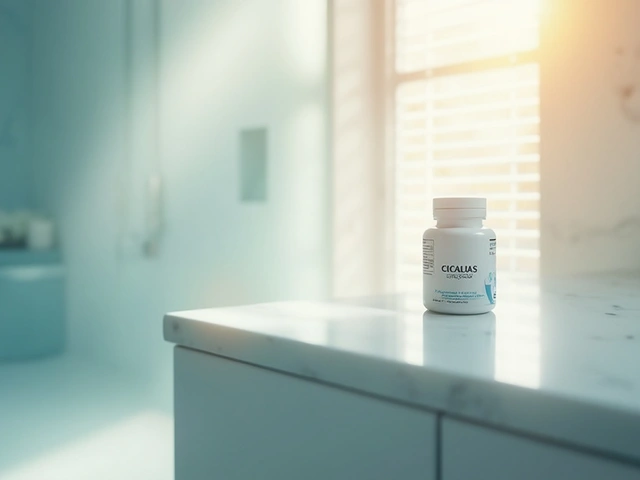

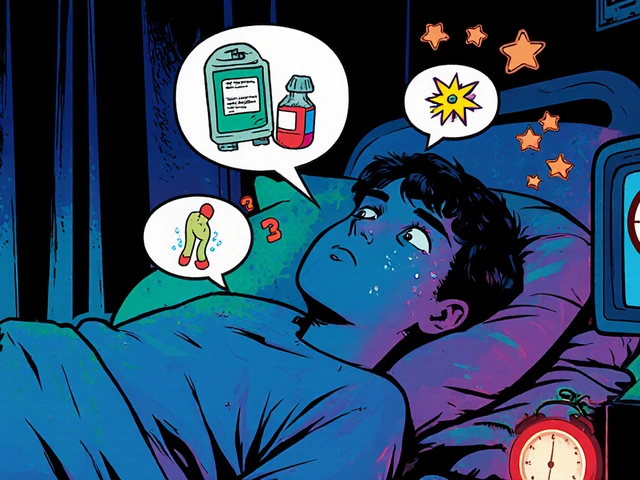
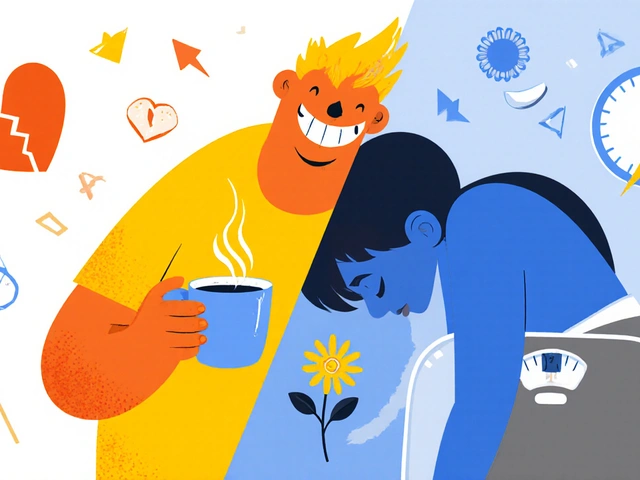
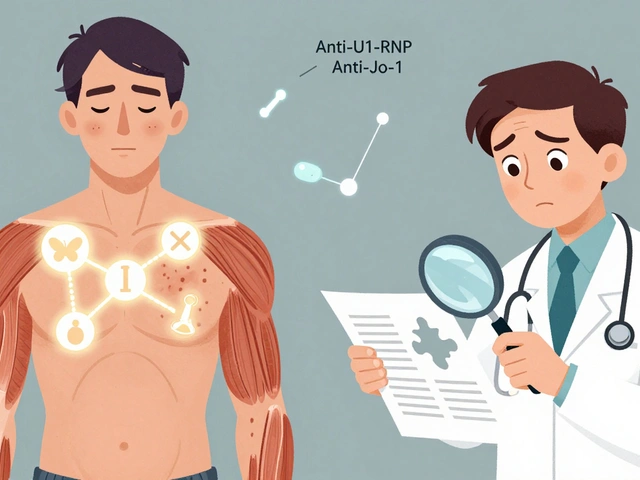
Kathryn Ware
November 18 2025
I’ve been using naloxone for over a year now-prescribed after my third ER visit for respiratory depression. I didn’t tell my doctor I was drinking on weekends until I brought a log. He didn’t blink. Just said, ‘Good you’re tracking this.’ It’s not about being perfect-it’s about being honest. And yeah, I use emojis. 🙃 I’m not ashamed to say I’m still here because I asked for help. No guilt. No shame. Just facts. And a kit in my purse.